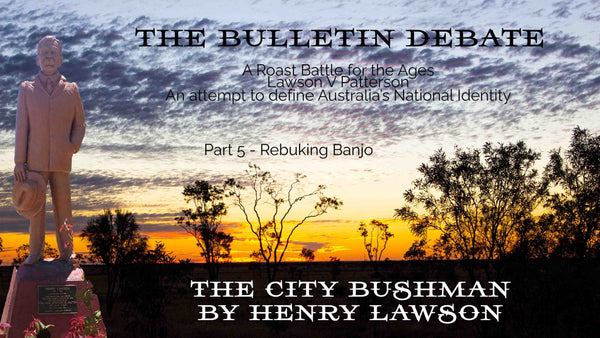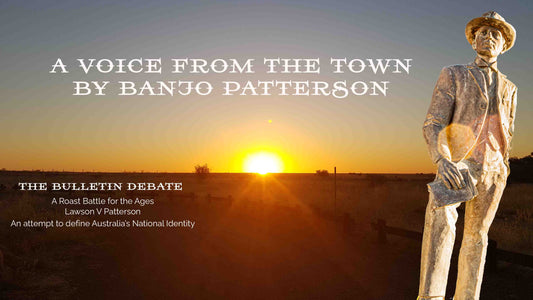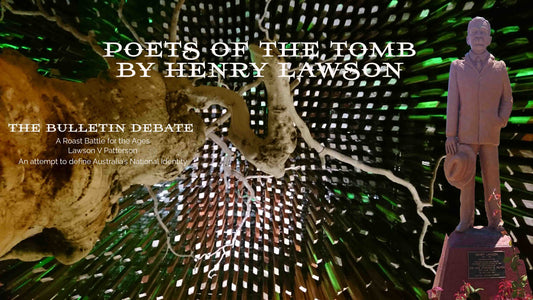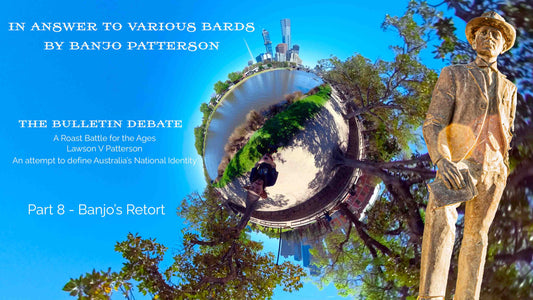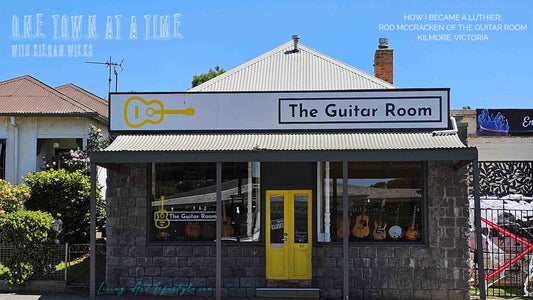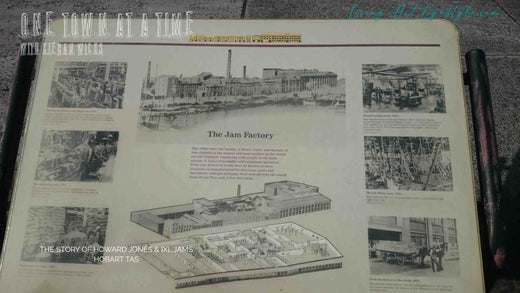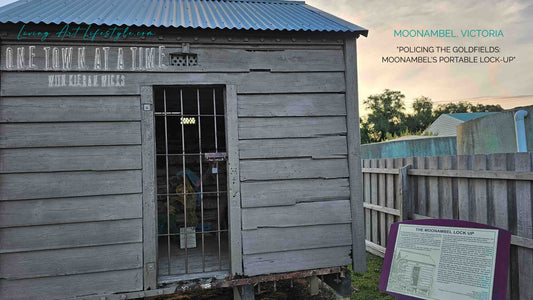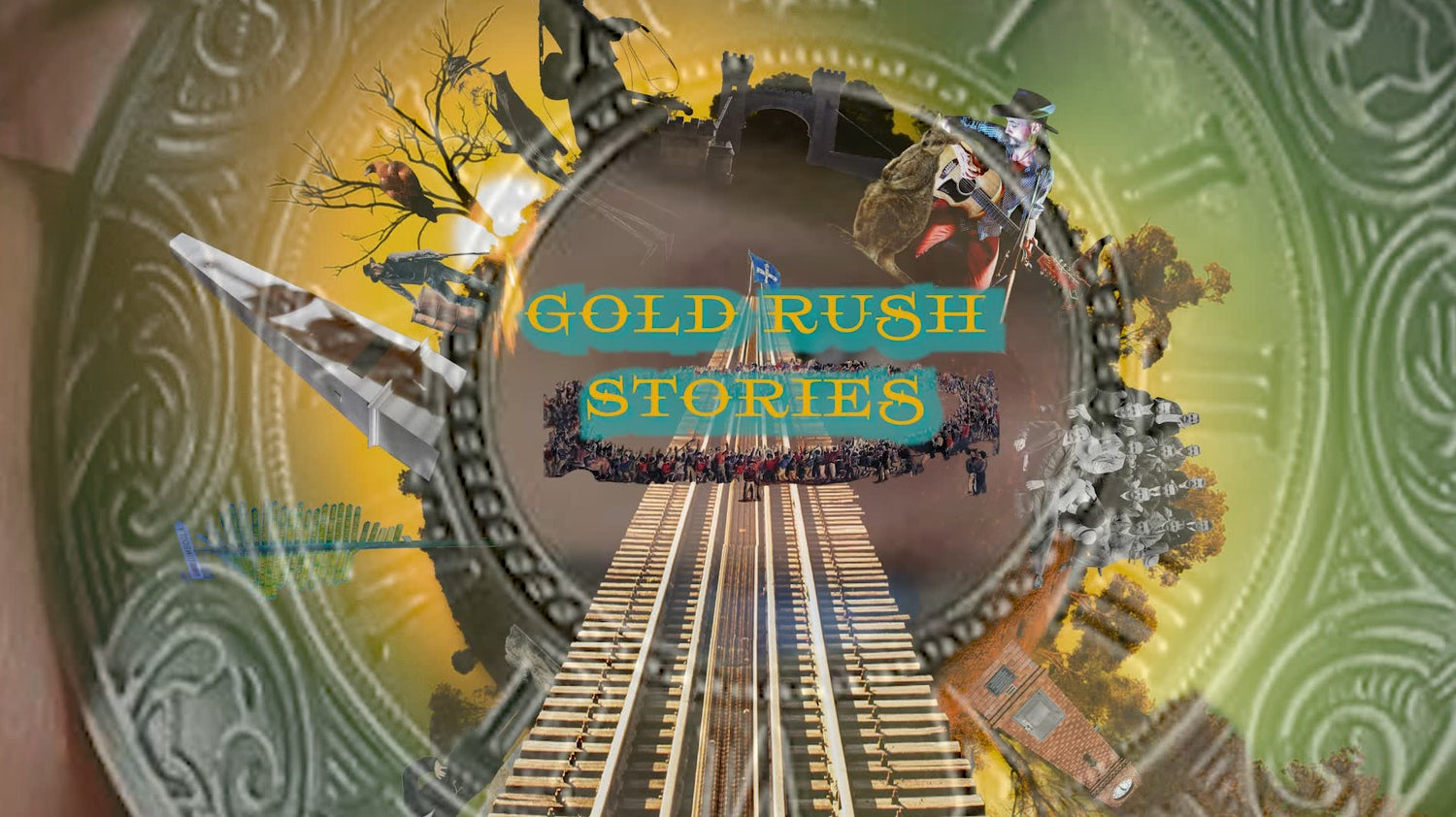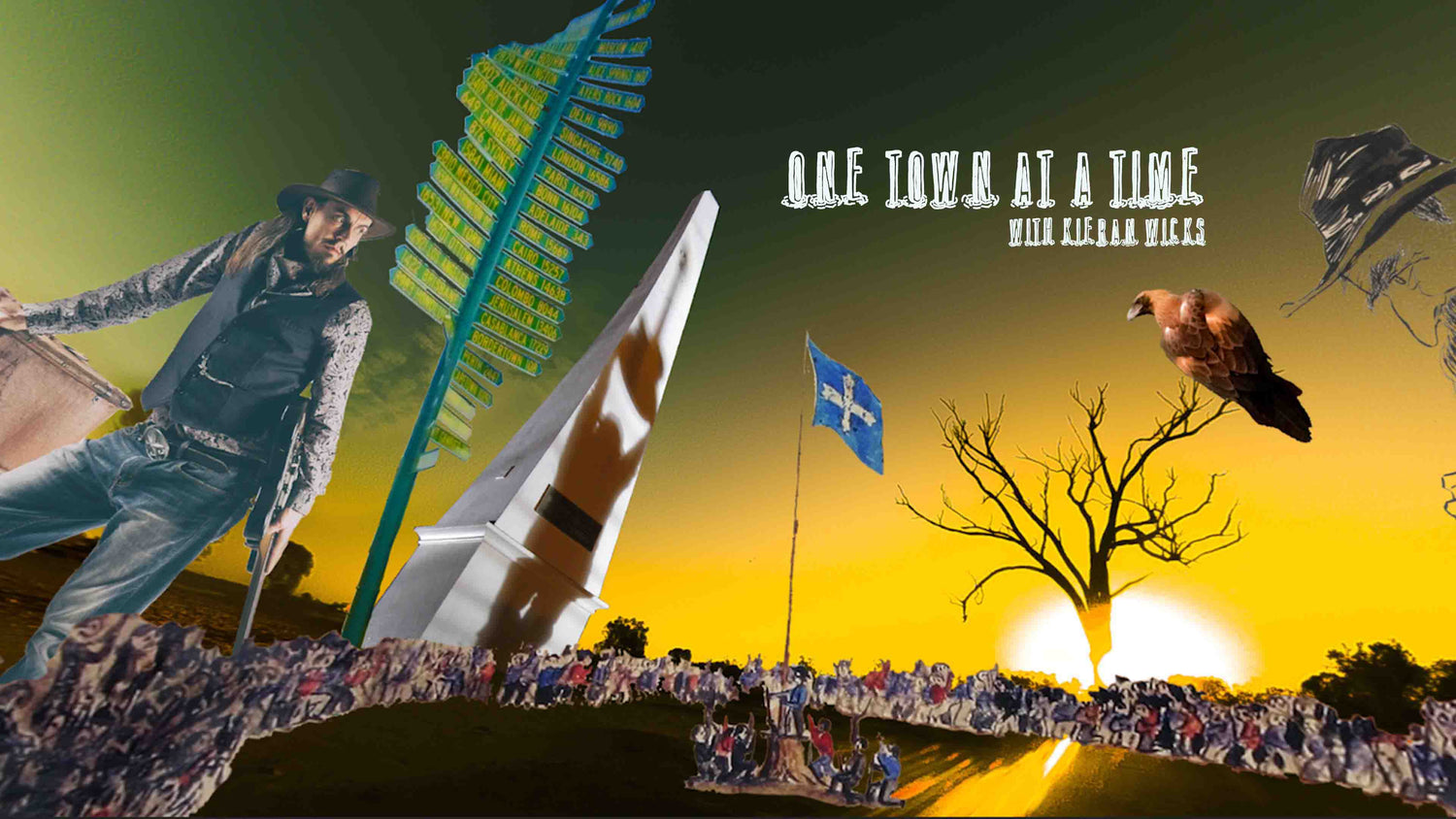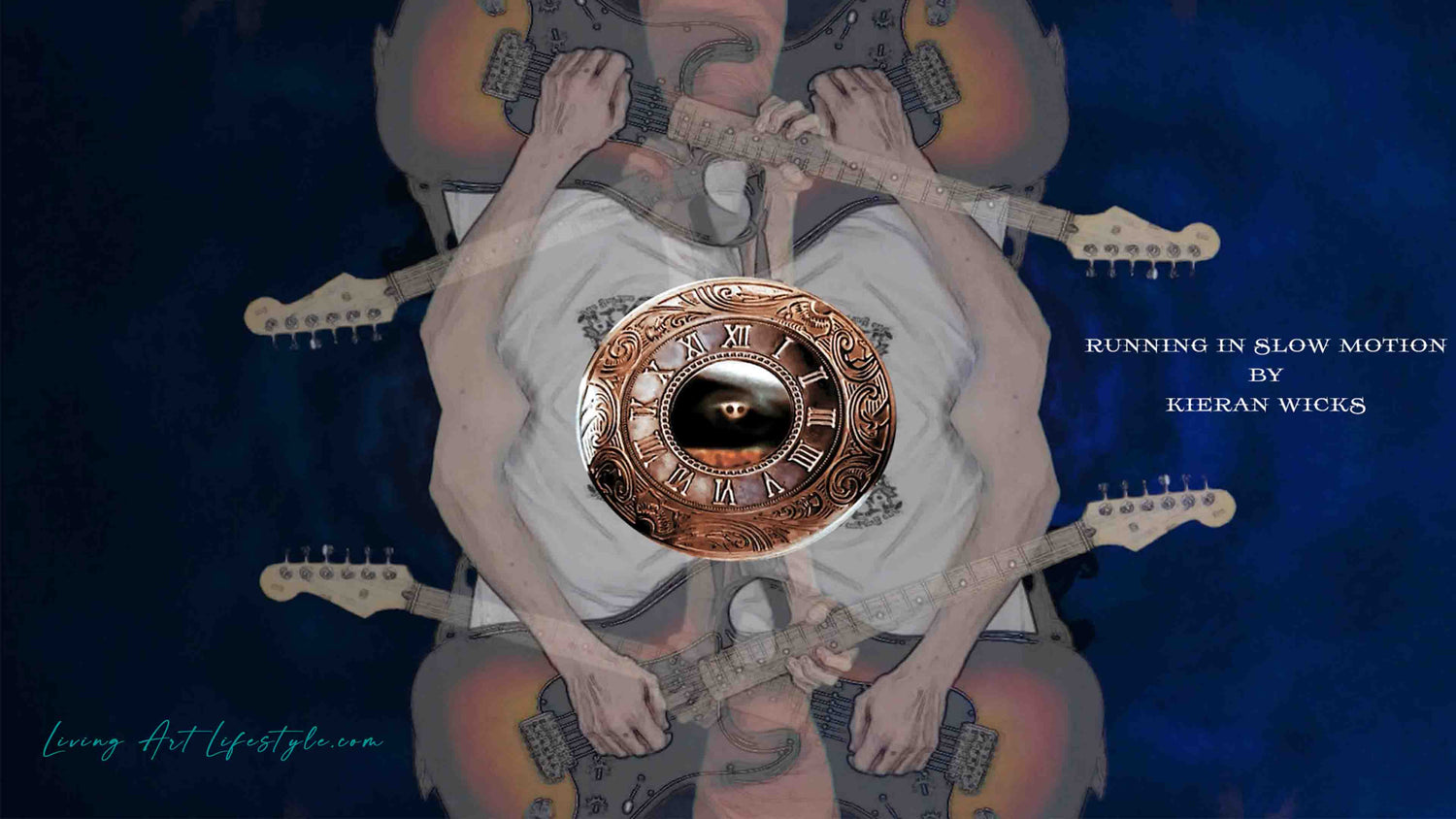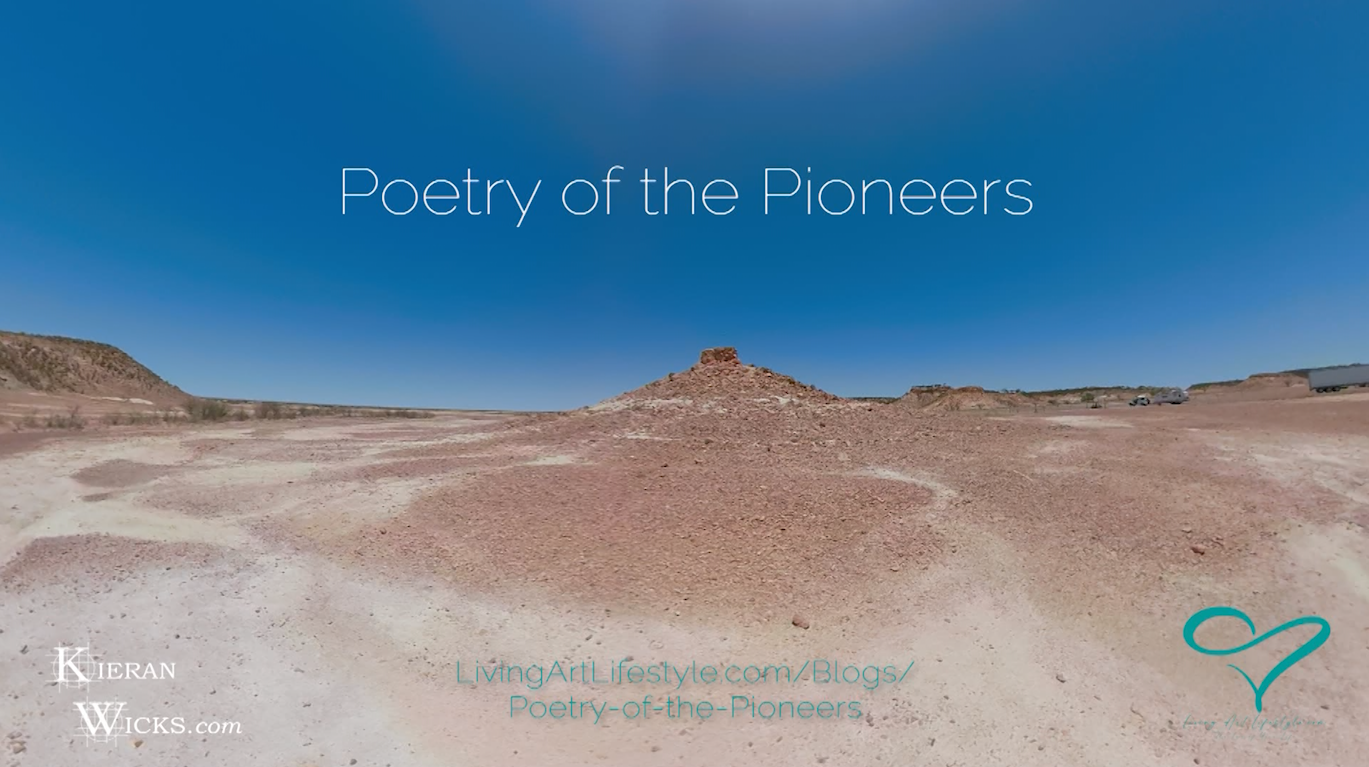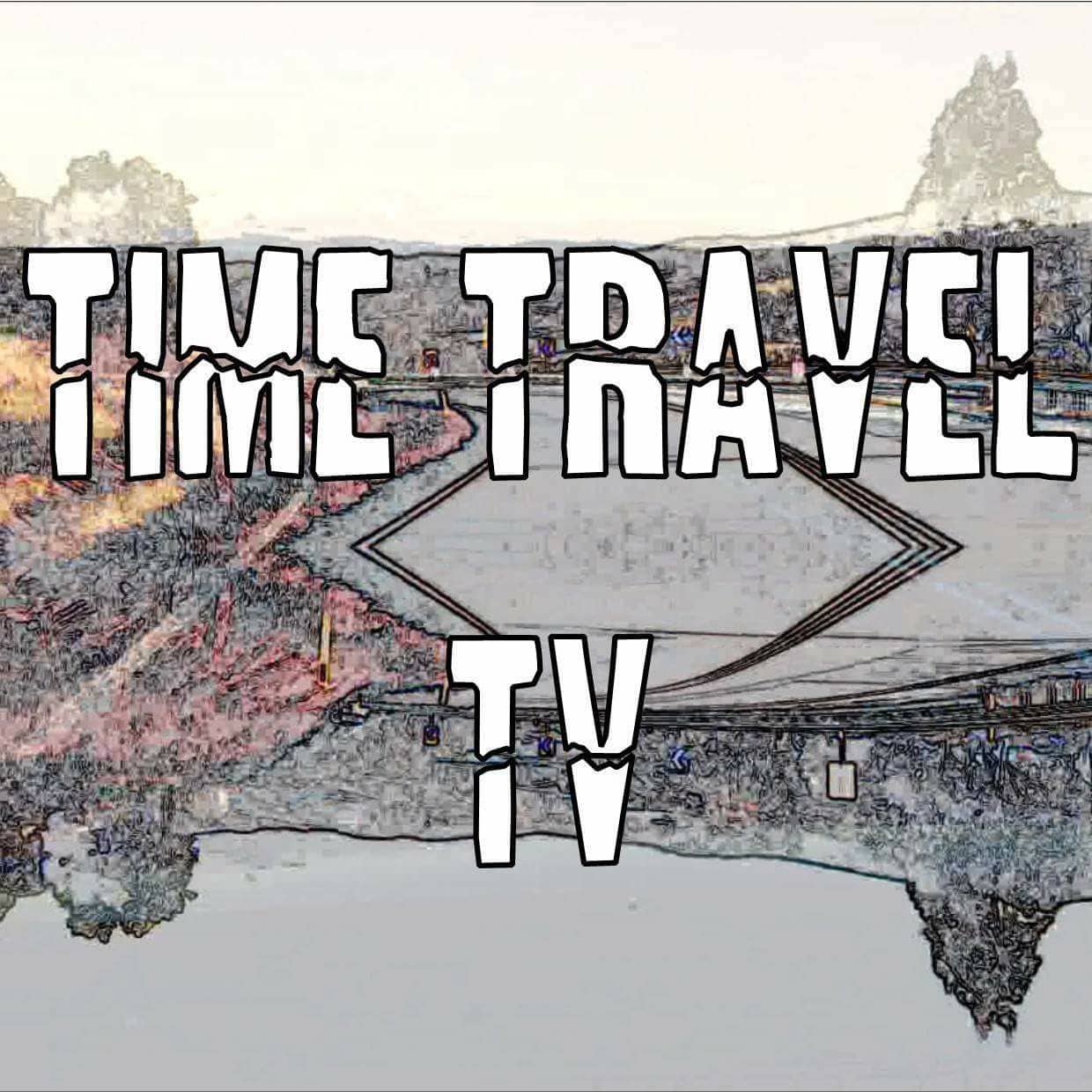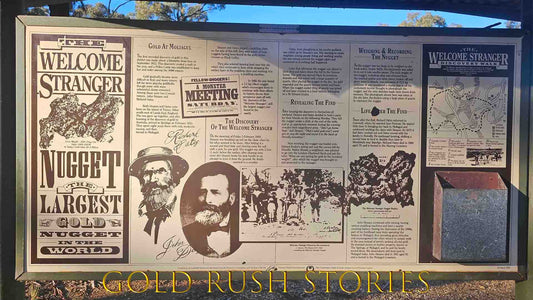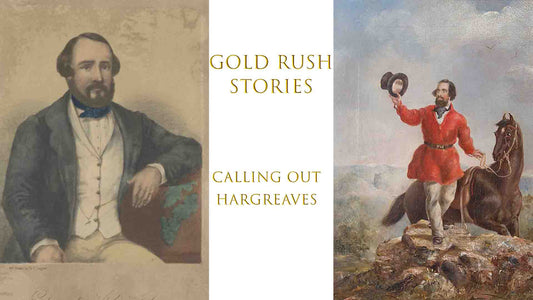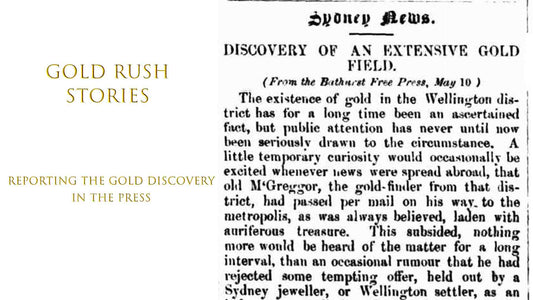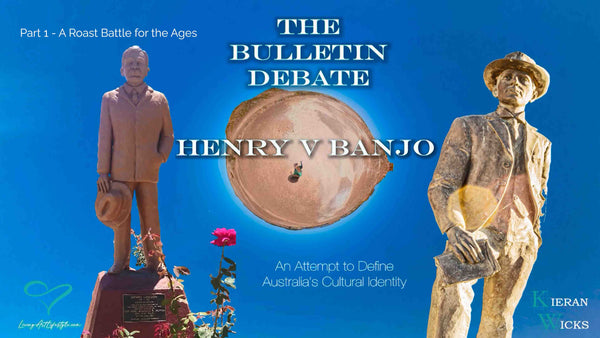 The Fact of the Matter
The Fact of the Matter
A 19th century Poetry Slam - A roast battle for the ages!!!
The Bulletin Debate – An attempt to define Australia's national identity
In 'Up The Country' Lawson opened proceedings by criticising self-aggrandised 'city bushmen', such as Banjo Paterson who tended to romanticise bush life. Paterson, in turn, responded indignantly with 'In Defence of the Bush' (23 July 1892) accusing Lawson of representing bush life as nothing but doom and gloom.
It wasn’t long before other notable voices started chiming to the Bulletin debate, offering their own two cents, and truth be known, leaping to Lawson’s defence, backing up his argument that the sacrifices of life on the land may not be worth it. That the downfalls of the drudgery and dangers of city life paled in comparison to the hours, days, weeks and months of toil on the land to be left with nothing to show but shear angst, suffering and heartbreak, in exchange for a mere few fleeting moments of joy.
The Fact of the matter, also known as 'The drovers in reply', was the third instalment of the Bulletin Debate, written by Edward George Dyson (4 March 1865 – 22 August 1931), or 'Ted' Dyson, a prolific Australian journalist, poet, playwright and short story writer.
Although known as a freelance writer, he was also considered part of The Bulletin writer group. In his day, the period of Australia's federation, Dyson "ranked very closely to Australia's greatest short-story writer, Henry Lawson", with Lawson known as the "swagman poet", William Ogilvie the "horseman poet", Dyson was the "mining poet".
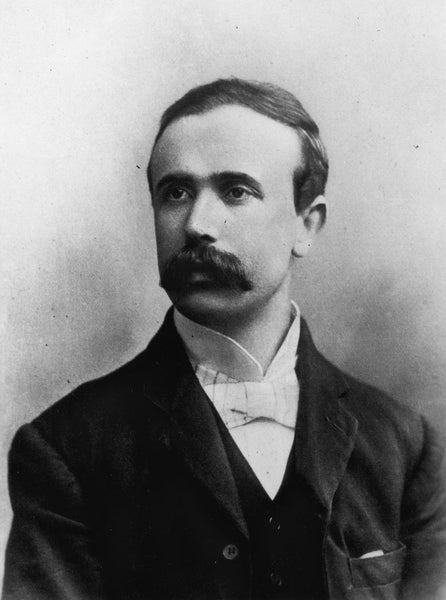
Edward Dyson - Photo https://digital.slq.qld.gov.au/cantaloupe/iiif/2/IE191783:FL194565.jpg/full/1000,1345/0/default.jpg
Growing up in Ballarat, Victoria, from an early age Edward Dyson worked the gold fields and on the land before relocating to Melbourne.
In the Fact of the Matter, Dyson sides with Lawson, expressing the view that those who glorified country life should go and live there.
The old “Nice place to visit, but wouldn’t want to live there”.
Dark Hydra - Unisex Heavy Cotton Tee
The Fact of the Matter
I’m wonderin' why those fellers who go buildin' chipper ditties,
'Bout the rosy times out drovin', an' the dust an' death of cities,
Don't sling the bloomin' office, strike some drover for a billet,
And soak up all the glory that comes handy while they fill it.
P’r’aps it’s fun to travel cattle or to picnic with merinos,
But the drover don’t catch on, sir, not much high-class rapture he knows.
As for sleepin' on the plains there in the shadder of the spear-grass,
That’s liked best by the Juggins with a spring-bed an' a pier-glass.
An' the camp fire, an' the freedom, and the blanky constellations,
The 'possum-rug an' billy, an' the togs an' stale ole rations—
It’s strange they’re only raved about by coves that dress up pretty,
An' sport a wife, an' live on slap-up tucker in the city.
I’ve tickled beef in my time clear from Clarke to Riverina,
An' shifted sheep all round the shop, but blow me if I’ve seen a
Single blanky hand who didn’t buck at pleasures of this kidney,
And wouldn’t trade his blisses for a flutter down in Sydney.
Night-watches are delightful when the stars are really splendid
To the chap who’s fresh upon the job, but, you bet, his rapture’s ended
When the rain comes down in sluice-heads, or the cuttin' hailstones pelter,
An' the sheep drift off before the wind, an' the horses strike for shelter.
Don’t take me for a howler, but I find it come annoyin'
To hear these fellers rave about the pleasures we're enjoyin',
When p’r’aps we’ve nothin' better than some fluky water handy,
An' they’re right on all the lickers—rum, an' plenty beer an' brandy.
The town is dusty, may be, but it isn’t worth the curses
'Side the dust a feller swallers an' the blinded thirst he nurses
When he’s on the hard macadam, where the jumbucks cannot browse, an'
The wind is in his whiskers, an' he follers twenty thousan'.
This drovin' on the plain, too, it’s all O.K. when the weather
Isn’t hot enough to curl the soles right off your upper leather,
Or so cold that when the mornin' wind comes hissin' through the grasses
You can feel it cut your eyelids like a whip-lash as it passes.
Then there’s bull-ants in the blankets, an' a lame horse, an' muskeeters,
An' a D.T. boss like Halligan, or one like Humpy Peters,
Who is mean about the tucker, an' can curse from start to sundown,
An' can fight like fifty devils, an' whose growler’s never run down.
Yes, I wonder why the fellers what go buildin' chipper ditties
'Bout the rosy times out drovin' an' the dust an' death of cities,
Don't sling the bloomin' office, strike ole Peters for a billet,
An' soak up all the glory that comes handy while they fill it.
Featured in
The Bulletin - Vol. 12 No. 650 (30 Jul 1892)
Created/Published - Sydney, N.S.W.: John Haynes and J.F. Archibald, 1880-1984
https://nla.gov.au:443/tarkine/nla.obj-489039268
Goldeneye - Unisex Heavy Cotton Tee
1896 variation
By 1896 the poem was reworded and renamed 'The drovers in reply' and appeared in Dyson's first anthology Rhymes from the Mines and Other Lines in 1896.
We are wondering why those fellows who are writing cheerful ditties
Of the rosy times out droving, and the dust and death of cities,
Do not leave the dreary office, ask a drover for a billet,
And enjoy 'the views,’ 'the campfires,’ and 'the freedom' while they fill it.
If it’s fun to travel cattle or to picnic with merinoes,
Well the drover doesn't see it—few poetic raptures he knows.
As for sleeping on the plains beneath "the pale moon" always seen there,
That is most appreciated by the man who’s never been there.
And the "balmy air", the horses, and the 'wondrous constellations,’
The 'possum-rugs, and billies, and the tough and musty rations,
It's strange they only please the swell in urban streets residing,
Where the trams are always handy if he has a taste for riding.
We have travelled far with cattle for the very best of reasons—
For a living—we’ve gone droving in all latitudes and seasons,
But have never had a mate content with pleasures of this kidney,
And who wouldn't change his blisses for a flutter down in Sydney.
Night-watches are delightful when the stars are really splendid
To the sentimental stranger, but his joy is quickly ended
When the rain comes down in sluice-heads, or the cutting hailstones pelter,
And the sheep drift with the blizzard, and the horses bolt for shelter.
Don't imagine we are soured, but it's peculiarly annoying
To be told by city writers of the pleasures we're enjoying,
When perhaps we've nothing better than some fluky water handy,
Whilst the scribes in showy bar-rooms take iced seltzer with their brandy.
The dust in town is nothing to the dust the drover curses,
And the dust a drover swallows, and the awful thirst he nurses
When he's on the hard macadam, where the wethers cannot browse, and
The sirocco drives right at him, and he follows twenty thousand.
This droving on the plain is really charming when the weather
Isn't hot enough to curl the soles right off your upper leather,
Or so cold that when the morning wind comes hissing through the grasses
You can feel it cut your eyelids like a whip-lash as it passes.
There are bull-ants in the blankets, wicked horses, cramps, and 'skeeters,’
And a drinking boss like Halligan, or one like Humpy Peters,
Who is mean about the rations, and a flowing stream of curses
From the break of day to camping, through good fortune and reverses.
Yes, we wonder why the fellows who are building chipper ditties
Of the rosy times out droving and the dust and death of cities,
Do not quit the stuffy office, ask old Peters for a billet,
And enjoy the stars, the camp-fires, and the freedom while they fill it.
Timelord - Unisex Heavy Cotton Tee

📜 Episode 1: A Roast Battle for the Ages
In this episode, we delve deep into the background of the battle, meet the players and start to understand the circumstances under which it came about. Witness the clash of ideas, the powerful prose, and the cultural impact of these two literary powerhouses.
📜 Episode 2: The Opening Salvo – Borderland By Henry Lawson
A shot across the bows, Borderland displays a contempt and disdain for romanticising life on the land, pointing to the stark realities faced by those that venture inland, far flung from the luxuries of city life, Lawson leaving no doubts as to the persuasion which he prefers.
📜 Episode 3: Game On – In Defense of the Bush
Playfully scornful, cheekily referencing Lawson’s poem’s Faces in the Street, and the Bastards From the Bush. Patterson outright calls Lawson nothing more than a whinger in, In Defence of the Bush.
📜 Episode 4 – The Drovers in Reply ; The Fact of the Matter by Edward Dyson
It wasn’t long before other notable voices started chiming to the Bulletin debate, offering their own two cents, and truth be known, leaping to Lawson’s defence.
📜 Episode 5 – Rebuking Banjo ; The City Bushman by Henry Lawson
The Gloves are off! Lawson insists that Banjo doesn’t know what he is talking about, having never, literally rather than figuratively, walked a mile in ‘their’ shoes.
📜 Episode 6 - Another Contender Enters the Race ; The Overflow of Clancy by HHCC
A parody none the less, the first of two that play on Patterson’s iconic character Clancy of the Overflow. The Overflow of Clancy reads like a first-hand eye-witness account from a contemporary who had ‘dealt’ with Patterson first hand.
📜 Episode 7 - A Pile On ; Banjo of the Overflow by Francis Kenna
“And the bush is very pretty, when you view it from the city” - Would Banjo really swap his city lawyer life for that of Clancy’s?
📜 Episode 8 - Banjo's Retort ; In Answer to Various Bards by Banjo Patterson
After 4 fellow poets attack Banjo across the pages of the Bulletin, it’s easy to see that he may have felt as though he was being attacked on all fronts. it was becoming more of a pile on, so Banjo felt inclined to set the record straight.
📜 Episode 9 - Lawson's Lament ; The Poets of the Tomb by Henry Lawson
By now the debate had devolved into a slinging match. Lawson acquiesces that Banjo’s declaration of optimism is the best outlook in life in this playful lament, embracing and playing on this caricature of doom and gloom with The Poets of the Tomb his last contribution to the Bulletin Debate.
📜 Episode 10 - The Last Word ; A Voice From the Town by Banjo Patterson
Banjo thought the debate was done and dusted, but just when you think you’re out, they pull you back in. Upon returning home after many a year away. Banjo is asking himself, is the grass greener? If he had his time again, would he think and act differently?





